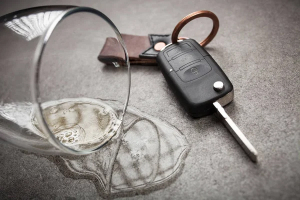
Getting a DUI arrest in California is a serious situation that can affect you for many years. This is particularly true if you have prior DUI cases or if you received a DUI conviction on a recent charge.
Being aware of the initial five actions to be taken right after a DUI arrest in California is crucial for every person facing DUI charges, whether the charge is a first-offense DUI, a second-offense DUI, or after even more DUI arrests.
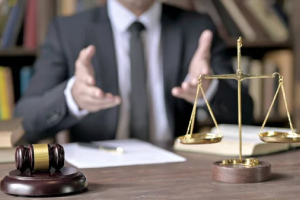
The chances of having a good outcome in your case may be jeopardized by taking the wrong steps. Turn to a trusted law firm where the attorneys know the laws related to driving under the influence. An experienced, top-rated DUI attorney has extensive knowledge of the courts and will protect your rights and help you traverse the legal system in California.
DUI stands for driving under the influence. The California Vehicle Code, § 23152(a) VC, states, "it is unlawful for a person who is under the influence of any alcoholic beverage to drive a vehicle." The California Vehicle Code section § 23152(b) indicates that it is "unlawful for a person who has 0.08% or more, by weight, of alcohol in his or her blood to drive a vehicle."
Anyone who violates those sections regarding blood alcohol content or those that indicate that it is unlawful for anyone to drive a commercial vehicle or a vehicle for hire with a 0.04% or more, by weight, of alcohol in his blood may face serious DUI penalties.
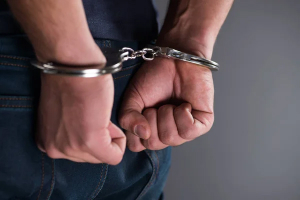
The charges you are likely to face in California are serious and can result in stiff penalties. The penalties you will likely face include suspension of your driver's license, paying fines, and jail time.
Various factors, such as prior DUI convictions or whether this is your first offense, can influence the repercussions of a DUI conviction. Do not think the penalties will be minimal for you just because you are a first-time DUI defendant.
Possible repercussions for a first DUI conviction may include fines, up to three years of informal DUI probation, and penalty assessments. These assessments total approximately $2,000 and likely include the successful completion of an alcohol program at a cost of several hundred dollars.
Anybody under 21 years of age driving a vehicle while under the influence of alcohol or drugs is subject to a zero-tolerance law.
Someone who is convicted under the same circumstances for the first time may also be ordered to complete community labor or community service work. A first conviction in some California counties also results in having an ignition interlock device placed on your car for four months.
Aggravating factors present may bring stiffer penalties when someone is convicted of DUI. Excessive speeding, causing injuries or fatalities, or having a child in the vehicle are examples of those factors.
It is crucial to understand that criminal charges are separate from the DMV process that aims to suspend your driver's license upon a DUI conviction.
Knowing the first steps to take after getting arrested for a DUI in California can potentially have a considerable impact on the outcome of your DUI case. Taking these important first steps can help your DUI attorneys protect your rights with the criminal court and the California DMV.
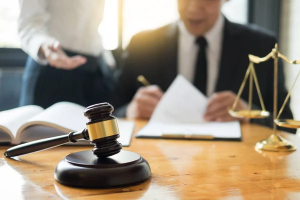
Getting in touch with a experienced DUI attorney is the primary step following a DUI arrest. Do not assume that the court goes easy on you if a police officer arrested you on a first DUI offense. A misdemeanor DUI still carries serious consequences.
The repercussions are more severe if you are arrested for a DUI felony offense or for aggravating factors such as reckless driving that causes an accident with injuries or fatalities.
The top-rated, award-winning Hurwitz Law Group offers legal representation to persons arrested for DUI.
Reviewing the arrest report and evidence is another of the first five steps you should take following an arrested for a DUI in California. It is within your rights to acquire a copy of the police report concerning your arrest for driving under the influence.
The report contains evidence such as the police officer's narrative, statements you made, and blood alcohol content (BAC). Consider these items and other evidence against you, including field sobriety tests. Compare the officer's report and evidence to the facts of your DUI arrest.
Let your attorney know about any discrepancies. The presence of discrepancies may invalidate the police report.
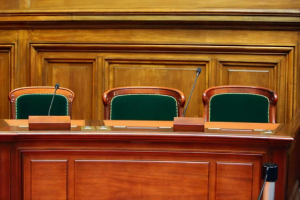
You are within your legal rights to request a hearing before the California Department of Motor Vehicles (DMV). Failing to request a hearing within ten days after your arrest for DUI will result in an automatic license suspension. Your administrative hearing before the DMV allows you to contest the DMV suspension.
Your attorney can help you prepare for the hearing and present your evidence, so hiring an experienced attorney is an important step after your arrest.
In the event of a successful hearing, your license will not face suspension. You will have a license suspension if you lose your case. You may still be eligible for a restricted license.
It is required that DUI defendants appear on the scheduled court date. Your attorney appears with you, and you plead guilty, not guilty, or nolo contendere, a no-contest plea at your arraignment.
When you enter a plea of not guilty, the court sets future court dates for a pre-trial and trial, which you attend with your attorney.
When you enter a plea of not guilty, the court sets future court dates for a pre-trial and trial, which you attend with your attorney. The prosecution may have little to no factual evidence against you, even though you were arrested for DUI and had your driver's license confiscated. Your attorney may challenge whether the officer made a lawful arrest, ask for dismissal of the charges or go to trial.
A plea bargain reduces the original charge or charges to a lesser offense. The prosecution and defense may drop one charge if you plead guilty to another charge.
Many people, especially those charged with a first-time DUI, are released from jail within several hours after their DUI arrest. Do not let release from the county jail without having to spend the night give you a false sense of security. You still face serious charges, even if the charges are for a DUI misdemeanor offense.
The arrest for driving under the influence automatically triggers the process at the DMV, during which the DMV hearing officer can suspend your license. Failure to request a hearing for Administrative Per Se can lead to automatic license suspension.
Having a proficient DUI lawyer on your side is important, whether this is your first offense, a second offense, or other DUI convictions. The DUI attorneys at Hurwitz Law Group assist you in you understanding the charges against you and how the evidence, such as your blood alcohol concentration, can be used in the case against you. Your lawyer gathers evidence, conducts legal research, files motions, and tries to negotiate a plea bargain to avoid a court trial.
Your situation calls for an attorney who knows the laws for the criminal case and the DMV hearing that may result in suspending your driving privileges. Throughout your case, your lawyer will be present to advocate for your rights and liberty.
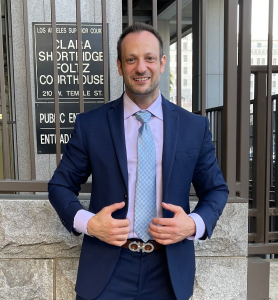
Contacting an experienced, top-rated California DUI lawyer as soon as possible after your arrest is an important step. Hurwitz Law Group DUI lawyers are compassionate and openly communicate with clients. We are highly skilled practitioners with a reputation for being trustworthy and honest.
Contact us at (323) 968-6519 to arrange an initial consultation at no cost and obtain the legal assistance you need or contact us online today.
Get answers to the inquiries you may have regarding DUI in California.
You can apply for expungement of a DUI misdemeanor in California and some felony convictions if you complete certain requirements and conditions and have not served state prison time. To be eligible, it is necessary to fulfill all requirements of your sentence and wait for a year following the date of your conviction.
A misdemeanor DUI charge in California must be commenced within one year and three years, from the date the offense occurred, for a felony DUI. Commencing the DUI means that the misdemeanor offense is filed, the felony indictment is filed, or the defendant is arraigned on felony DUI charges.
Initial DUI offenders do not have a mandatory jail sentence when placed on informal probation. You must still complete a DUI treatment program and comply with other penalties.
The DMV's administrative suspension of your driver's license is distinct from the criminal case. If failed to request an administrative hearing within ten days, your license is suspended 30 days after your arrest date.
The duration of the license suspension in your criminal case depends on factors such as previous DUI convictions and factors such as if you caused a motor vehicle crash with an injury or fatality.
Search
Categories